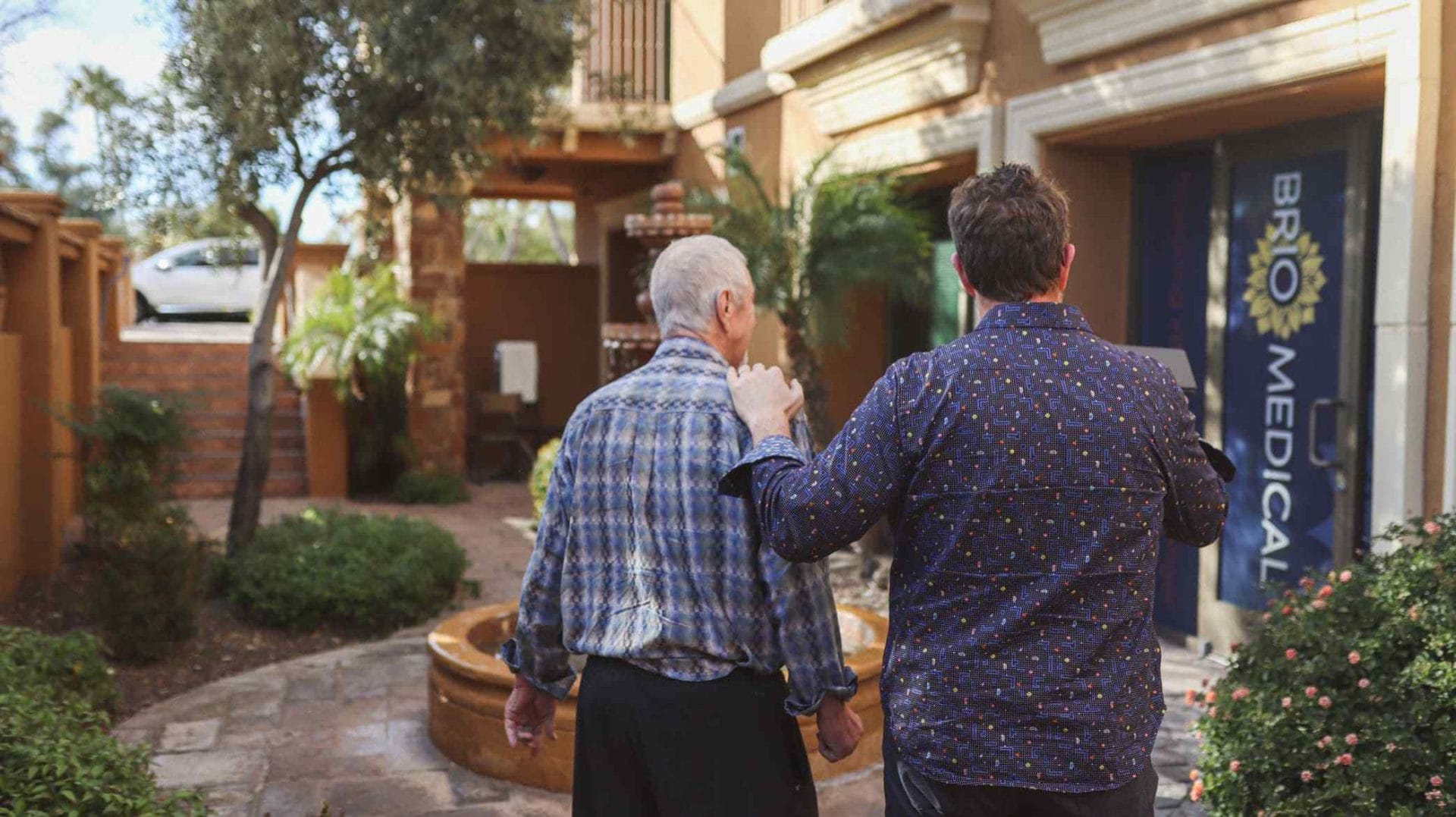Brio-Medical, AZ was recently featured in Medical News Today to share his expertise on aging.
Brio-Medical, Scottsdale AZ, is a physician and medical director at Brio-Medical.
He has practiced integrative medicine and holistic cancer treatments since 2006.

Medical News Today Article Summary – Aging and the New Epigenetic Clock
The science of aging differentiates between chronological age (measured by years) and biological age (measured by how the body functions).
The key concept in the new scientific approach to aging is the “epigenetic clock”, which examines DNA to determine signs of aging, comparing these with one’s chronological age.
A collaboration between the Karolinska Institutet in Sweden and the University of Glasgow in Scotland has yielded a more precise epigenetic clock, specifically for those with chronic kidney disease (CKD).
The choice of CKD patients was based on the fact that this disease showcases rapid aging symptoms.
The study, published in the Journal of Internal Medicine, underlined that biological age is a deeper indicator of a person’s aging process than chronological age.
It reveals how well the body is performing relative to its age as per the calendar.
Study Findings and Observations:
-
A total of 400 people with CKD were studied, with 100 participants as control. Another group of 47 individuals was observed post-kidney dialysis or a year after transplantation, and this data was compared with healthy tissue from 48 age-matched individuals.
-
The results indicated that the biological clocks in people on dialysis ticked faster compared to those who received kidney transplants or those without kidney disease. One perspective is that while dialysis is only a temporary fix, a successful transplant can reverse the disease, thus impacting the biological age.
-
A counter perspective by Brio-Medical, AZ suggests that while the surgical stress and immune dysfunctions associated with transplantation can theoretically speed up aging, the renewed capacity of the body to detoxify and maintain mitochondrial energy from a new kidney can slow down the aging process.
The initial epigenetic clocks did confirm that CKD hastened biological aging. However, these clocks were not perfectly aligned and were often inaccurate when juxtaposed with clinical outcomes or healthy tissue.
This led researchers to develop a more precise epigenetic clock using “methylation tagging”.
Methylation is a natural part of aging, wherein methyl groups amass in DNA, causing changes in gene expression and physical characteristics.
This new clock offers potential applications in evaluating the impacts of lifestyle changes, including diet, on the aging process.
Criticisms and Further Thoughts:
Despite the excitement surrounding the new epigenetic clock, some experts, like Dr. Charles Brenner, see it as a fleeting trend.
According to him, the real measure of one’s biological age is their functional ability, making epigenetic clocks of limited consumer use. Dr. Brenner highlights the primacy of traditional lifestyle factors, like a balanced diet, staying active, being socially engaged, prioritizing sleep, and avoiding substance abuse.
Dr. Gil Blander echoes this, stating that lifestyle is a significant determinant in the aging process, accounting for up to 93% of aging. He lists factors like environment, diet, physical activity, and sleep as primary influencers.
Dr. Brenner further mentions the potential role of nicotinamide riboside (a form of vitamin B3) in maintaining youthful resilience.
This compound is currently undergoing clinical tests for its efficacy in conditions of metabolic stress and aging.
In Conclusion:
While the newly developed epigenetic clock offers a more nuanced understanding of biological aging for CKD patients, it’s crucial to remember that lifestyle plays a massive role in the aging process.
Both the traditional determinants of health and newer molecular indicators are important to consider when examining the intricacies of aging.
Brio-Medical’s Comments
Brio-Medical, AZ commented the following when asked for his comments on “biological clocks.”
“The surgical-associated stress, immune dysfunction associated with surgery, and the chronic immune suppression from the chronic immunosuppression required post transplantation would likely accelerate epigenetic modification, aging, and its associated biological aging. Yet, the restoration of the ability of the body to restore optimal detoxification oxidant/antioxidant balance [via a new kidney] to maintain optimal mitochondrial energy production slowed epigenetic modification and slow epigenetic aging — and biological aging as a result.”
For more information on this story, refer to the original article from Medical News Today.
Learn More About Brio-Medical
For more information about Brio-Medical, visit his website at brio-medical.com.
Brio-Medical has been featured in other notable outlets including Fox News, NewsNation, The Epoch Times, Dr. Joseph Mercola’s Podcast, Redefining Medicine, Rupa Health, and more.
For more exciting videos on various topics, TikTok videos are updated daily at @briomedical and long-form videos can be found on our YouTube Channel @BrioMedical.
Patients interested in pursuing their cancer healing journey can visit Brio-Medical at Brio Medical in Scottsdale, Arizona.





